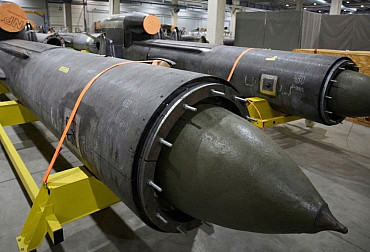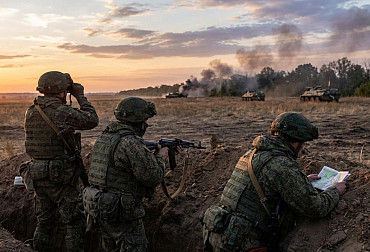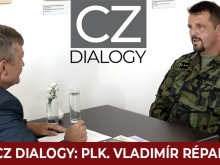Gen. Miroslav Feix: We are working on the direction of our army
The Government of the Czech Republic has recently adopted a key document - the Defence Strategy of the Czech Republic 2023. For the Capabilities Planning Section of the Ministry of Defence this means a lot of work, as the Section is responsible for its development into the conditions of the Czech Army and for managing the tasks of defence planning with a focus on planning the construction and capabilities of forces within the Czech Army. Other tasks of this section include the elaboration of the wartime structure of the armed forces and their mobilisation, and it is also responsible for the management of the mobilisation development system, the management of the system of replenishment of the armed forces with soldiers in active reserve, the elaboration of the plan for the development of the armed forces and the Doctrine of the Army of the Czech Republic. It is also responsible for the planning of the deployment of the Army of the Czech Republic and for the determination and distribution of the allocated limits of the Ministry of Defence's manpower tables for the relevant calendar year. The Ministry of Defence Capability Planning Section is also responsible for the preparation of the Ministry's annual plan and for coordinating the preparation of the input to the medium-term activity plan for the Army of the Czech Republic. The director of this section is Brigadier General Miroslav Feix, whom we have invited to the next episode of our discussion programme CZ DIALOGS.
Video: Interview with the Director of the Capabilities Planning Section of the Ministry of Defence Brigadier General Miroslav Feix / CZ DEFENCE
The development of the army's capability planning can be perceived, among other things, through modernization projects, where, according to General Feix, it is not so much a leap forward as a rebound, since, except for the 5th generation aircraft, in all cases of modernization it is a technique that our soldiers should have had at their disposal a long time ago. "The Army should have had its brigade, whether heavy or medium, a long time ago. Let's not focus on individual purchases. What is important for us is that the army modernizes as a whole, that it starts fighting in a way that is relevant to today or the future," says General Feix, who believes that individual equipment is just a tool in itself. They need to be brought together in some way, linked to commanders' decision-making, and digitized on the battlefield. "That, I think, is the main goal. And these tools will allow us to do that. The old ones couldn't be connected. To focus on one single purchase, that's not very important to me as the director of capability planning for the overall future Army," General Feix notes in the interview.
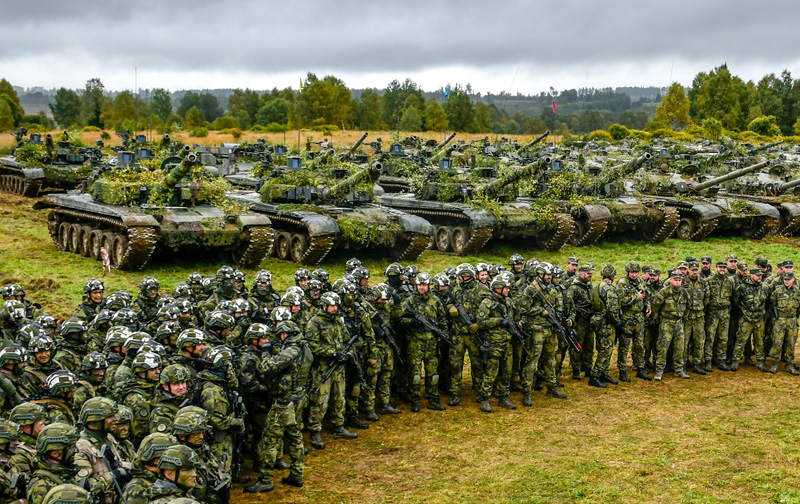
The Army of the Czech Republic, as part of the North Atlantic Alliance, must fulfil its NATO tasks. An important part of the Alliance is the coordination of the capabilities of the individual armies, where the interoperability of NATO units enables cooperation, the unification of the capabilities of individual armies so that they are capable of joint combat. Within this framework, there is a division of capabilities while maintaining the all-military character of our army. "Some things like massive reconnaissance in space, those are incredibly expensive things and we do those together in NATO," explains General Feix. It is precisely the space domain activity that also provides an opportunity for the Army to work with the civilian sector and academia, which General Feix confirms, "We are currently creating an Innovation Hub in collaboration with our section, which is exactly the place for collaboration, especially with academia and companies. We are looking at how to innovate the army, how to make it an innovative organisation. For me, paradoxically, the most important thing is to decriminalise the contact between soldiers and companies. So that we can talk to each other. And I think that's the most important thing and such a necessary condition for successful cooperation. If someone sees dishonesty behind every potential meeting with a company, no one will want to do it. We would like to work closely with companies, like in Israel." General Feix goes on to add as part of his speech that it is not just official forums that address where warfare is headed. The joint discussion will enable the creation of know-how of companies and their proper setting for further development and successful cooperation with the military. According to Miroslav Feix, the joint functioning of companies and the army in Israel is a good example for our republic as well. In his experience, it is difficult to distinguish in Israel whether the discussion and planning still takes place at the level of the army or whether it is a corporate development. This is primarily due to the different conditions under which the state operates and, in particular, the different level of danger, which we can see literally live these days. The United States is a similar example in this respect. "Ex-servicemen go to companies more, they can normally talk informally with each other, and it's only the specific negotiations that are looked after. In our country, most of the time nobody wants to get involved because nobody wants to be accused of doing something dishonest," General Feix describes the situation.
The development of the army's capabilities is also affected by the current conflict in Ukraine. According to General Feix, the war logically causes the development of various things to accelerate. One is the immediate one, when we start fighting tomorrow, we can often take those tactics, how the weapons are used. The long-term level, which I often emphasize, is important for capability planning. We wouldn't want it to look like Ukraine. That is, we can't have the same technology, the same procedures to the way Ukraine is now fighting Russia. We need to technologically prevail over our future enemy. I would like an army that is really modernized so that it doesn't just end up with the status quo that is currently in Ukraine, on the tactical level."
In this context, we wondered how far ahead the future capabilities of the military can be planned, not only in light of changes in tactical procedures, but especially in light of huge technological advances, domain networking, and things like that. "In our military, we plan for 10 to 12 years. That means making a vision of how to wage war plus or minus 15 years from now, what demands will be placed on the military. The standard is that seven to 12 years is capability planning and then building, development," says General Feix. General Feix considers a 10-year period for capability planning to be optimal, which he says is when objectives and development can be estimated in a relevant way. "Now we are working on a new CFAC. The time from the White Paper to today is as far away as the implementation of this concept. A lot has changed in that first period. So that ten years is a really long time," the general says, adding that it is important to keep an eye on directions and trends and not get too far ahead of specific purchases. "For example, if you ask me how many cars I'm going to buy in 2032, I'll shrug my shoulders and say I don't know," Feix points out.
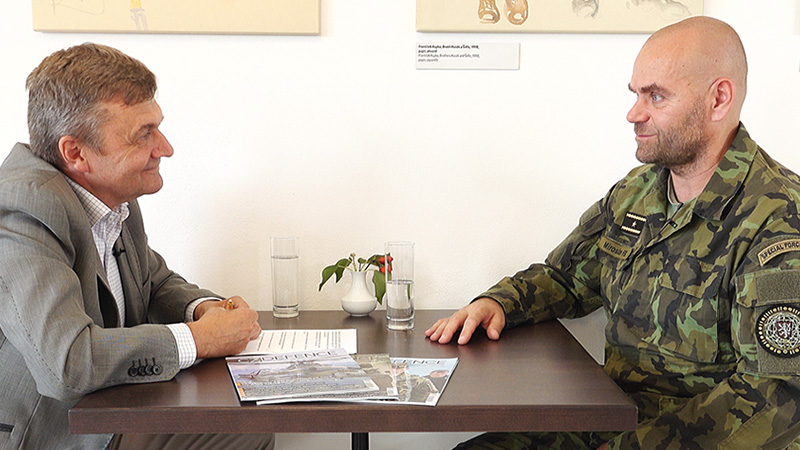
Modernization processes in the army are only part of capability development. New technologies enable and require changes in the command and control system and other capabilities. "That is exactly it," says the general, adding, "On the contrary, it is also a bigger part of our work. Our section doesn't buy the systems; we work on the direction of the Army and its overall cooperation. How the various forces coordinate with each other, how the Army as a whole functions, and of course command and control." In that sense, there is a lot of work to be done when the 5th generation aircraft is acquired, because the F-35's capabilities change the Army's previously established practices. "Ironically, for me, the decision to acquire this aircraft is two years old. That was exactly about which aircraft to acquire or which is the most advantageous, what we actually recommend to the government, and I don't care much about the aircraft itself anymore. But how do we tie it all together, how exactly do we plug the F-35 into the overall plans so that we have a modernized military at that time and have the data means to use the F-35. How to tie it all together, that's my concern at the moment. That's what I'm interested in and responsible for," said Brigadier General Miroslav Feix, Director of the Capabilities Development Section of the Ministry of Defence.
Another topic of our conversation was the 2% of GDP funding for defence that the Ministry of Defence has at its disposal since this year. In the framework of the defence legislation, we could not avoid a public discussion on defence issues and the overall readiness of the population for the defence of the state. As a former commander of cyber forces and information operations, General Feix had a lot of insights on the subject. We also discussed whether our army has any know-how that it can pass on to its foreign colleagues, etc. If you want to learn more, listen to the full interview at the top of this article.












